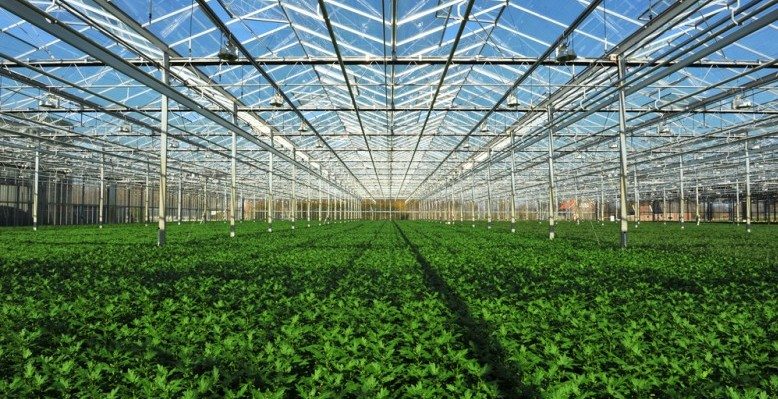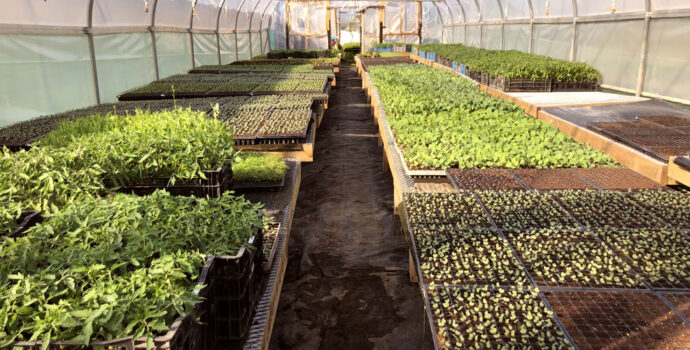Fairness Must Be Restored to Irish Horticulture Sector

Speaking at the Joint Oireachtas Committee on Agriculture, Food and the Marine on the Challenges in the Irish Fruit and Vegetable Sector with a focus on Food Waste, IFA President Tim Cullinan said it is vital that fairness is restored to the Irish horticulture sector in order for fruit and vegetable growers to survive.
“The importance of underpinning our domestic horticulture producers has never been as important following recent shortages of certain products and the increasing emphasis on food security,” Tim Cullinan said.
“The action in the National Horticulture Strategy must be implemented; if not, empty supermarket shelves which we experienced at times this year will become the new norm,” he said.
“Many crops can be grown and produced almost ten months of the year in Ireland, but only if retailers pay the cost of local sustainable production. Better supports are needed for Irish vegetable growers to avoid any more from exiting the sector and leaving the country even more dependent on imports,” Tim Cullinan said.
“Fairness must be returned to what is currently a fundamentally unfair food supply chain,” he added.
The National Horticulture Strategy launched earlier this year as a result of a recommendation of Food Vision 2030 and it outlines eight key strategic actions which align with IFA’s key asks for the sector.
The eight key strategic actions are:
- Strengthen the position of the grower in the marketplace.
- Develop a charter between growers, consolidators and retailers, and increase consumer demand for local, in season, fresh, quality fruit, vegetables and plants.
- Establish the framework for a permanent non-EEA seasonal workers’ scheme to ensure a reliable supply of skilled seasonal workers, while research into automation is intensified.
- Review horticulture course availability and suitability for a modern dynamic sector, enabling the educational platforms to attract.
- Research and Development for the industry.
- Better data and information for better insights.
- Integrate Horticulture back into the broader Agricultural Knowledge and Innovation System.
- Support innovation and diversification.
From IFA’s perspective, points 1,2 and 3 are critical for the sector and need to be addressed as a matter of urgency to ensure our critical mass of growers is not further eroded. I will now address these points in more detail along with addressing the issue of food waste which was a request of the committee today.
According to the EPA, food waste in Ireland is the 5th highest in Europe and about 15% ahead of the EU average. It is estimated that food waste accounts for approximately 8-10% of greenhouse gas emissions; therefore, reducing food waste is a hugely effective climate action.
The EPA statistics estimate that 29% of food waste is generated at household level. Manufacturing and processing accounts for 28%, restaurants and food service account for 25% while only 7% occurs at producer level.
IFA Fruit and Vegetable Committee Chair Niall McCormack said growers are taking on a number of initiatives to reduce food waste including engaging with Food Cloud. IFA has engaged with Food Cloud for a number of years, encouraging growers to collaborate with this worthwhile initiative.
“Educational campaigns for consumers around food waste and storage are needed to educate consumers who are the biggest offenders with a striking 29% food waste rate,” Niall McCormack said.
“Another area where IFA believe food waste could be reduced is the area of supermarket specs on products, particularly in years where harvest conditions are challenging. Over the past decade the supermarket spec of all fresh produce has increased dramatically,” he said.
“This leads to perfectly saleable produce being rejected at packer and retail level because of minor blemishes. From a climate and economic perspective, the most carbon effective use of produce is that it is consumed, unprocessed by the consumer. An educational campaign is required for both retail buyers and consumers alike,” he added.
Read IFA’s submission in full here.



